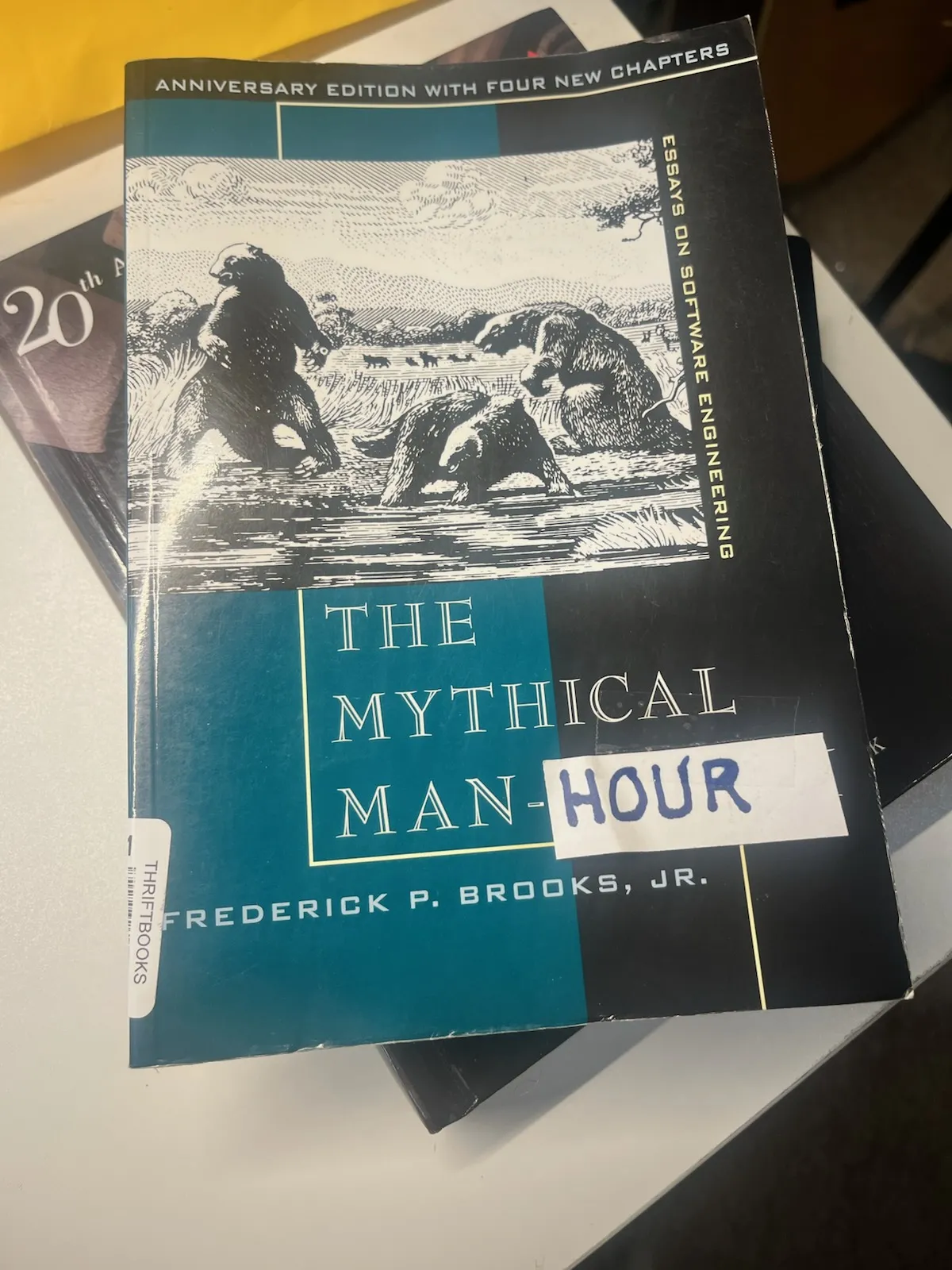Paper Trails
The other day I received a package from ThriftBooks (well, from whatever bookseller ThriftBooks interfaced for) and one of the books had a surprise in it. Actually, on it!

On the cover, the title, “The Mythical Man-Month” had a small piece of paper taped over the word “Month” with the word “HOUR” written in all-caps with a marker, complete with a globby H and R hand-lettering. This annotation, polite enough to note deface the book, but aggressive enough to use all caps and include with the selling of the book really got me. The book is the Mythical Man Month, not hour. I googled “Mythical Man Hour” to quickly see if this seller was referencing something (did not find anything). I am now extra-excited to read this book and figure out what this means, and learn more about the seller and their strong feelings about the title of this book. Clearly it was important enough to evangelize a stranger.
A related thought to this one has to do with the actual contents of this book. That is, git commits! When you save a change to your codebase using git, you have to give it a crisp one-line description of the change. Working in a legacy codebase, you will find yourself reading other people’s commits a LOT. Sometimes you’ll even be reading commits you wrote yourself (especially if you’re dusting off something you wrote a few years ago). In the moment, it can be tempting to write something like “design feedback updates”, obvious to everyone in the present moment, but once you lose that context, it’s a bit useless to the future. This advice I read from Google’s Engineering practicesuggests considering those future generations when writing your commits. A bit of a pay-it-forward system. You might even be paying it forward to yourself!
And as software engineering often does… this also reminds me of video games. My favorite aspect of FromSoft games (quick scorecard: I’ve started 3 and finished 0 of those games). Placed in a bleak atmosphere filled with punishing enemies, you often come across notes left by other players. Sometimes notes of courage, sometimes actual advice to avoid something, and best of all, someone placing a note in the perfect context for a joke.
These sort of transmissions seem just as much for the author as they are for the recipient. The author asserting their individual experience within the vast jungle of universal experiences, and the reader plucking something individual to find their way through the jungle.
It’s funny to me how these are all solitary activities (reading a book, writing code, playing a video game…or at least a Souls game). There’s something delightful about transcending the format.